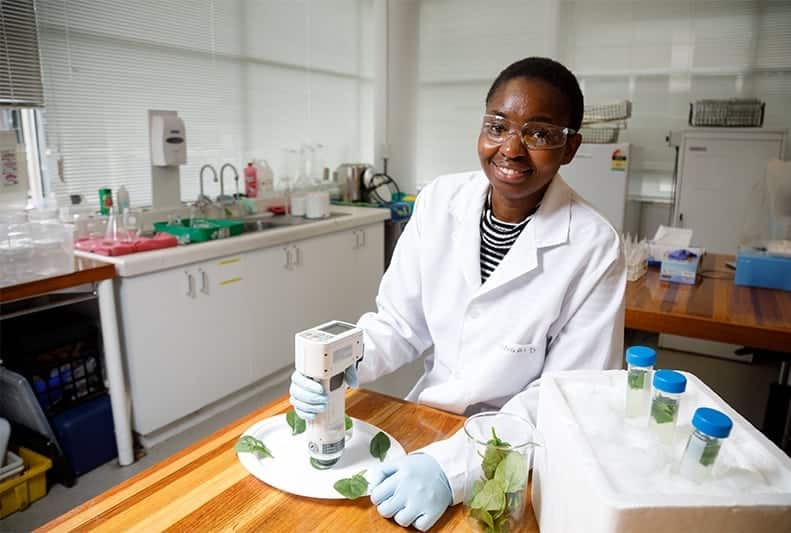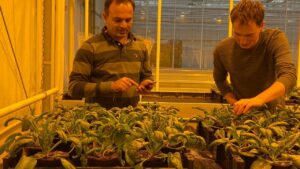A Tasmanian research project is working on increasing the shelf life of baby spinach and other baby salad leaves, so it keeps fresh in your fridge for longer.
The research is being done byPhD candidate Vongai Dakwa with research partner Houston’s Farm, a Tasmanian grower and processor of baby leafy salad vegetables.
“Baby leafy salad vegetables have a high respiration rate and short shelf life of about 12 days and I’m working with Houston’s Farm to increase this and meet consumer demand, while retaining quality and food safety,” Ms Dakwa said.
“We also want to reduce product wastage, as losses can occur along the supply chain and during retail storage for various reasons, including temperature control,” she said.
Ms Dakwa has been conducting a range of laboratory experiments in consultation with Houston`s Farm to examine factors that can be controlled by the vegetable industry to increase shelf life.
“I have been investigating the influence of storage temperature and bruising on shelf life. Baby leaves are tender and can be bruised during mechanical processes, such as harvesting and processing,” Ms Dakwa said.
“Shelf life can be increased if cotyledons – the first leaves to appear from a germinating seed – are not included within the packed baby spinach.
“I have also found a technique to remove grit more effectively during the washing stage that doesn’t compromise product quality or shelf life,” she said.
Ms Dakwa’s research project is just one of ten PhD projects of the ARC Training Centre for Innovative Horticultural Products, directed by food safety expert Associate Professor Tom Ross, from the Tasmanian Institute of Agriculture.
“The Training Centre is mentoring students like Ms Dakwa to be innovative, industry-savvy researchers who, in their future careers, will contribute to the development of the fresh produce sector,” Associate Professor Ross said.
“We are developing new vegetable and fruit products that are premium quality, convenient and fresh for consumers,” he said.
Other research projects underway at the Training Centre include reducing damage to bananas in the supply chain, reducing potato greening, and reassessing organic standards.
“The research of the Training Centre can only be done in collaboration with horticultural industry professionals who work with our PhD students to ensure their research is targeted and relevant to industry needs,” Associate Professor Ross said.
Ms Dakwa aims to complete her PhD next year, and publish the findings in journals and industry publications.
The Training Centre is funded by the Australian Government through the Australian Research Council Industrial Transformation Research Program, Woolworths and the University of Tasmania, and receives in-kind support from the Tasmanian Institute of Agriculture.
More information about the Training Centre can be found at utas.edu.au/arc-training-centre and on Twitter @InnovativeHort.
Source: The Tasmanian Institute of Agriculture (TIA)













